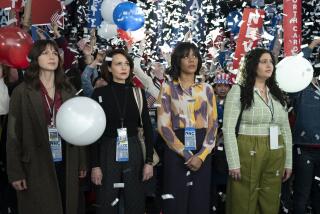More News, More Claptrap
The people that are working on the accident investigation are not working exclusively to make it easy for you to understand.â That was Robert T. Francis, vice chairman of the National Transportation Safety Board, responding irritably to an impatient reporter demanding explanations of radar backing maps of the final minute of TWA Flight 800. Francisâ refusal to pander to the media was perhaps the most useful thing said so far in the welter of noise, commentary and âfactsâ that have ensued since the plane went down off Long Island on July 17.
While federal investigators were guided by the correct professional notion that nothing is worse than the premature release of unreliable information, local politicians felt no such scruples. Sen. Alfonse M. DâAmato (D-N.Y.), New York Gov. George E. Pataki and New York City Mayor Rudolph Giuliani swarmed to the crash site like vultures. They cast themselves in the role of purveyors of substantive information and theory: DâAmato insisting on the boat-launched missile theory, Pataki mistakenly asserting on July 23 that most of the missing bodies had been found, Giuliani generating a blitz of sound bites criticizing TWA. And the news media, abhorring a vacuum, took down their every word.
My purpose is not to disparage Republicans. It simply happens that they are in power in New York these days; I have no deep-seated conviction that most Democrats would have behaved much differently. The problem--and this illuminates many current difficulties of our culture--lies in the awful symbiosis between multichannel infotainment and cynical politics. The proliferation of live round-the-clock news programming, driven by a hunger for ratings, provides the perfect venue for politicians eager to masquerade as truth-tellers and public counselors.
One of the reasons why European TV news remains so superior to its U.S. counterpart is that European broadcasters still keep the time allotted to news within careful limits. This largely removes the pressure of those long, tedious vacuums that must be filled with secondary material purporting to be information. One basic criterion for going to the emergency round-the-clock format should be the likelihood that the event will continue to generate new information. This may be the case with a war, for example. But the impact of the trauma on the public psyche should not in itself be enough to justify exceptional news scheduling.
On its face, the argument of television executives seems plausible: We are only giving people what they want, and market ratings are the barometer that what we are doing is correct. But is it what people want? What they crave is information that will provide a rational and moral compass to make sense of awful events such as TWA 800 and the white noise that increasingly besets their daily living. The market, however, is at best a cold, blind, amoral force--which is why it is so relentlessly efficient.
What people want is answers to their fears, but live TV merely stokes the fears. I donât think many people actually want--even if they go on watching--to be taken any deeper into the anxiety-ridden, voyeuristic jangle that TV ânewsâ now creates.
So who is to blame? The market makes an awkward enemy, since it is both pervasive and impersonal: One might as well organize against gravity. Nor do I think that most individual journalists are culpable. They are tyrannized by the need to fill the uneventful hours--and, worse yet, to do so live--and to keep market share in the process.
There are still, believe it or not, a sizable number of thoughtful, intelligent journalists, even in television, who are dismayed by the role that network executives have appointed them to play. Talk to journalists about their vulgar and intrusive behavior at disaster scenes, and they will tell you in all sincerity that they are sickened by their actions but feel that the demands of their bosses leave little alternative.
Reporters themselves may be in the best position to lead the outcry against the Disneys and the Time-Warners and the Capital Cities, the real agents of the pollution of our culture. Whether as producers, editors or reporters, they also can do more to challenge the directives from above within their organizations. In the process, they might even shake the cynicism of a nation that is not used to seeing members of the media exercise the sense of social responsibility that many of them, against all the odds, continue to feel.
More to Read
The complete guide to home viewing
Get Screen Gab for everything about the TV shows and streaming movies everyoneâs talking about.
You may occasionally receive promotional content from the Los Angeles Times.






